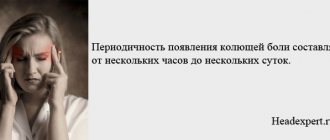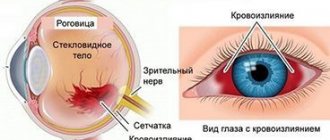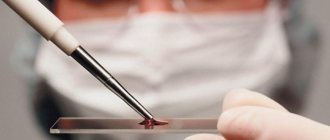Tinnitus is an auditory sensation observed in the absence of an external sound signal. In most cases, we are talking about subjective tinnitus (only the person himself can hear it), and only sometimes about objective noise (if, for example, the auditory sensation is caused by involuntary muscle vibration, then the doctor can also hear it - using a phonendoscope).
Data on the prevalence of tinnitus vary widely. This is explained precisely by the fact that tinnitus is not recorded objectively. The following experiment was conducted: people who had never complained of tinnitus before were placed in conditions of absolute silence. And 93% of those who took part in the experiment said they heard some kind of noise. On the one hand, we can simply not pay attention to the fact that we have tinnitus, since we live in a constant external sound background (for a city resident, this is a standard situation). On the other hand, in the absence of an external signal, hearing becomes sharper and begins to “read” the noises of the body itself, or the nervous system “makes up” for the missing sounds by generating a signal on its own (at the level of the nervous system this is no longer an acoustic vibration, but an electrochemical process).
Classification of noise in the head and ears
Due to the variety of noise variants, they were classified - combined into groups, common according to the causes of occurrence or characteristics of the course of the disease.
EPFowler (1947) identified two types of tinnitus:
- objective, or vibrator (occurs as a result of vibrations of any parts of the body, exists in reality, can be recorded using a phonendoscope or the use of other diagnostic methods);
- subjective, or non-vibratory (felt by a person, but does not occur in reality, the source of the hum in real life is absent; it cannot be assessed from the outside; it is also called the term “tinnitus”).
In their practice, doctors use a classification of noise based on its cause and distinguish:
- noise of the external, middle ear;
- muscular;
- vascular;
- central;
- peripheral noise.
Shpidonov Gennady Stanislavovich
Neurologist
Rostov State Medical University (neurology)
10 years of experience
Depending on the quality characteristics, the following are distinguished:
- one-sided or two-sided;
- pulsating or monotonous;
- arising from time to time or present constantly;
- low-frequency hum or high-frequency squeak, ringing;
- barely noticeable or strong, intense noise.
Ringing degrees
Despite the difficulty of assessing the intensity of tinnitus, this symptom can be determined by the degree of noise intensity. Russian otorhinolaryngology has developed its own classification of noise intensity, thanks to Academician of the Russian Academy of Sciences I.B. Soldatov. This classification includes 4 degrees of tinnitus intensity and reflects the practical significance of this symptom.
- Degree. At this degree, the patient easily tolerates noise, it does not affect the general condition and well-being of the patient and is noted only in the quietest conditions.
- Degree. The patient experiences frequent distractions by noise in quiet areas or at night. In some cases, there is difficulty going to bed.
- Ringing in the ears constantly bothers the patient, as a result of which the patient’s behavior is disrupted. He becomes irritable, the emotional background is constantly tense.
- The patient experiences unbearable noise, which almost completely deprives him of sleep and makes daily activities difficult. The patient's ability to work is significantly reduced.
This classification, despite all the subjectivity, allows you to most effectively assess the severity and degree of ringing in the ears, which turns out to be very valuable in the rational planning of treatment measures and the elimination of this symptom.
Causes
Noises in a person’s head are not always a symptom of pathology. Many sounds arise in our body during its life - during blood flow, joint movement, contraction and relaxation of muscles. They are masked by other sounds present around us and seem invisible to us, and in conditions of complete silence we can pay attention to them.
However, in most situations, extraneous noise, humming and other sounds in the head or ears are a sign of a pathological condition and a reason to contact a specialist.
Vibrator noise is caused by:
- diseases of the temporomandibular joint;
- neuromuscular diseases (gap of the auditory tube, myoclonus of the muscles of the soft palate, middle ear);
- changes in blood vessels (heart valve defects, narrowing of arteries, problems with veins, arteriovenous shunts).
Subjective noise may be based on:
- metabolic disorders (diabetes mellitus, thyrotoxicosis, hyperglycemia, hypoglycemia, atherosclerosis);
- brain tumors;
- neuroma of the VIII pair of cranial nerves;
- diseases of the hearing organ (cerumen plug, otitis, sensorineural hearing loss, labyrinthitis, neoplasms, Meniere's disease, trauma);
- damage by toxic substances (medicines that have a toxic effect on the organ of hearing, methyl alcohol and others);
- diseases of the spine (degenerative-dystrophic changes, instability and others);
- neurological diseases (acute and chronic cerebrovascular accidents, multiple sclerosis, neurocirculatory (vegetative-vascular) dystonia);
- hypertonic disease;
- mental disorders (neurasthenia and other neurotic disorders, depression, schizophrenia);
- exposure to noise and vibration in production;
- traumatic brain injuries (bruises, contusions).
Shpidonov Gennady Stanislavovich
Neurologist
Rostov State Medical University (neurology)
10 years of experience
Diagnostics
Diagnosing the symptom of tinnitus is important. Since the symptom may be associated with serious diseases. The intensity of the noise and its location, as well as its duration, are important in diagnosis.
Ringing in the right ear causes and treatment
In this case, the ringing is most likely associated with diseases such as otosclerosis, otitis interna, the presence of a foreign body in the outer ear on the right side, or damage to the cerebral vessels. Ringing in the right ear can be constant or periodic; the periodic appearance of a symptom speaks in favor of the vascular component of the disease, for example, in atherosclerosis and hypertension, but constant noise speaks in favor of otosclerosis and disorders of the nervous system. Why is there a ringing in my left ear? The reasons will be the same as with the right one. To clarify the diagnosis, the specialist will necessarily collect an anamnesis, examine using otoscopy, and determine bone conductivity using a special medical tuning fork. To clarify the diagnosis, special additional research methods are sometimes required, such as:
- Magnetic resonance and computed tomography - allows you to determine the degree of damage to the anatomical structures of the inner and middle ear;
- Tone threshold audiometry - in this study, an audiogram is compiled, which can be used to judge the degree of perception by the central nervous system of various sound stimuli;
- Angiography of cerebral vessels - allows you to determine the degree of damage to the arteries.
Often, to establish an accurate clinical diagnosis, it is sufficient to determine the accompanying set of symptoms that help in differential diagnosis.
Rumble in my head
It can also be normal if it appears when a person is in a noisy environment (on a street with active traffic, in a crowded place, in a noisy industry) and after returning to a quiet place, it gradually goes away within two hours. Sometimes it appears as a side effect of a number of medications - antidepressants, anticancer drugs, some antibiotics and NSAIDs. It can also occur in the postoperative period during operations on the organ of hearing - in this situation it is a consequence of intervention in the apparatus that conducts sounds, and after a while it goes away on its own.
Prevention methods
Timely prevention will help avoid headaches and tinnitus. Doctors at the Clinical Brain Institute recommend following the following recommendations:
- avoid stress and nervous tension;
- normalize your sleep and rest schedule;
- engage in regular physical exercise, including outdoor exercise;
- follow a diet that contains vitamins and microelements in sufficient quantities, as well as a minimum of fatty and fried foods;
- give up bad habits, smoking and drinking alcohol - they affect the condition of blood vessels.
At the Clinical Brain Institute, you can undergo a complete diagnosis and treatment of headaches that are accompanied by tinnitus. Our center has modern equipment. Its use allows you to get an accurate result in the shortest possible time, and then begin treatment of the underlying disease. Doctors warn that the effectiveness of treatment largely depends on compliance with all instructions at home, taking prescribed medications and following other instructions.
Diagnosis and treatment of noise in the head
When this unpleasant symptom appears, you should not waste time doing self-diagnosis, try to cope with it yourself, or hope that “it will pass.” The correct decision for the patient is to seek help from a specialist.
Diagnosis of diseases accompanied by noise in the head is carried out by doctors of various profiles - therapists, otolaryngologists, neurologists, psychotherapists/psychiatrists. But most often, patients with such a problem turn first to a neurologist.
First of all, the doctor’s task is to specify the noise, to understand what exactly the patient feels - a high-frequency squeak, ringing, buzzing, buzzing or hum, one- or two-sided, accompanied by pulsation or not; clarify the intensity of sensations and the symptoms that could accompany them. If the patient does not tell him himself, the doctor will ask leading questions about whether there is hearing loss, congestion in the ears, headache (usually occipital) pain, a tendency to increase or decrease blood pressure, find out what somatic diseases the person seeking his appointment suffers from. Human. Based on these data, the specialist will suggest what type of tinnitus he is dealing with - objective or subjective. Then he will conduct an objective examination - examine the organ of hearing and perform a number of tests necessary to make a diagnosis.
Shpidonov Gennady Stanislavovich
Neurologist
Rostov State Medical University (neurology)
10 years of experience
At the end of this diagnostic stage, the neurologist will make a preliminary diagnosis (or several putative diagnoses) and prescribe further examination to clarify it, in particular:
- general blood and urine analysis;
- blood biochemistry (lipidogram, coagulogram, ferritin);
- duplex or triplex scanning of neck vessels;
- MRI of the brain or cervical spine;
- consultation with an ENT doctor.
The scope of examinations is determined individually, depending on the specific clinical situation.
If a somatic doctor has not established the cause of noise in the head, he will assume the psychogenic nature of this condition and recommend that the patient consult a psychiatrist or psychotherapist. The specialist will have a targeted conversation with the patient, find out what complaints he has, focusing on feelings of anxiety or fear, decreased mood, especially in the morning, sleep disturbances, severe weakness, palpitations, sudden fluctuations in blood pressure, and will clarify whether this condition is permanent or temporary, not Is it related to stress? If a patient is suspected of neurosis, psychosomatic disorder or depression, the doctor will conduct a series of tests to clarify the diagnosis.
Only after the diagnosis has been established is it recommended to begin treatment for noise in the ear and head.
Medicines for noise in the head and ears
Conservative therapy often helps to cope with this symptom. Depending on the manifestation of which disease the noise is, the patient may be prescribed medications from the following groups:
- antibacterial, anti-inflammatory drugs (for infectious and inflammatory diseases of the ear);
- vascular drugs (improve blood circulation, nutrition of brain cells, dilate blood vessels);
- nootropics (improves metabolic processes in the cells of the nervous system);
- B vitamins (improve trophism of nervous tissue);
- trimetazidine (nourishes the heart muscle);
- iron supplements (if the noise is based on iron deficiency anemia);
- betahistine (for noise due to increased pressure in the cochlear labyrinth);
- antidepressants, anti-anxiety drugs, antipsychotics (if the pathology is psychogenic);
- sedatives, hypnotics – if the patient complains, it is not the inability to sleep;
- medications containing caffeine (for a tendency to low blood pressure, severe weakness and other symptoms of asthenia).
If the cause of the disease is cerumen, the doctor will wash it out of the ear and the noise will disappear.
Surgery
With confirmed damage to the autonomic nervous system, non-vibratory tinnitus can be eliminated by surgical intervention in the area of the nerves of the tympanic cavity or cervical sympathetic nodes.
Surgery on damaged structures of the tympanic cavity or cochlea will help get rid of objective noise.
Other treatment methods
As auxiliary methods of therapy, the patient may be prescribed:
- wearing a hearing aid, electrical stimulation of the auditory nerve (with decreased hearing acuity);
- physical therapy;
- massage;
- physiotherapy;
- psychotherapy.
Description of the phenomenon
Tinnitus or ringing in the ears is a very common condition, affecting approximately one in five adults. Usually it is only an inconvenience, but sometimes it can interfere with the ability to concentrate and sleep well. As a result, the patient experiences constant stress, which has a negative impact on his personal relationships and work.
This condition often accompanies hearing loss, although it does not cause deafness in itself. Many people with tinnitus have excellent hearing. Sometimes they develop increased sensitivity to sounds - hyperacusis, so they are forced to take measures to limit external noise.
In some cases, the pathology disappears after eliminating its cause, for example, otitis media or ear plug. However, often even after treatment, ear noise persists.
How to relieve an attack of severe noise in the head and ears
Treatment for severe head noise depends on its cause. If it occurs suddenly, is intense, is accompanied by vomiting, severe pain, heaviness in the head, dizziness, significantly worsens the person’s condition, and it is dangerous to fight it on your own - it is important to call an ambulance as quickly as possible.
Shpidonov Gennady Stanislavovich
Neurologist
Rostov State Medical University (neurology)
10 years of experience
If it is a sign of chronic pathology, is already familiar to you, and is not the first time it has appeared, you can try to cope with the noise using the following self-help methods:
- taking a relaxing bath;
- a full eight-hour sleep (on a comfortable mattress with a comfortable pillow, in a dark room, in silence);
- physical activity (such as yoga or jogging in the park);
- listening to calm music.
Some people are helped to eliminate noise by so-called “masking” - listening to a pleasant, soothing sound (such as the splashing of waves, the murmur of a stream, the chirping of birds) directly in nature, using an audio recording or a special device.
Symptoms
Manifestations of tinnitus include a variety of sounds heard by the patient. It could be ringing, buzzing, the sound of a roaring aircraft engine, hissing, whistling, clicking. It may be constant or appear only occasionally.
If you experience noise in the ear, you should consult a doctor. This may be associated not only with pathology of the hearing aid, but also be a manifestation of hypertension, hyperfunction of the thyroid gland, anemia and other diseases.
With infectious diseases of the ear, noise may be accompanied by pain and discharge from the ear canal.
When noise is combined with dizziness, urgent medical attention is required, as this may be a manifestation of Meniere's disease or cerebrovascular accident.
With brain tumors, this complaint intensifies at the height of a headache attack. With a tumor located in the posterior cranial fossa, the noise increases with changes in body position.
Prevention of pulsating noise in the head
The noise that occurs in the pulse rhythm is characteristic of vascular pathology of the brain. It can be prevented by a person’s attentive attitude to his health throughout his life - quitting smoking, regular exercise, adherence to a work and rest schedule, a nutritious, balanced diet, blood pressure control, timely medical examinations and treatment of vascular diseases that have arisen in the early stages. If these diseases already exist, following the recommendations described above will help reduce the intensity of the hum, alleviate it, which will improve the person’s quality of life.
If pulsating noise appears in the head only in certain situations (under stress, when working at the computer), its prevention will be to minimize exposure to situations that provoke deterioration of the condition.
Practical advice
If you experience ringing in the ears, and even more so it bothers you and interferes with your activities, you should not delay in contacting a specialist for professional help, otherwise you may miss the progression of a serious disease that may be accompanied by ringing in the ears. Only a specialist - an otorhinolaryngologist will be able to accurately determine the cause of tinnitus and plan subsequent treatment. By the way. Following the advice of your doctor is a prerequisite for effective relief from an unpleasant symptom. Take care of your body and health, be happy!
Potential Complications
If tinnitus appears suddenly and bothers a person for a long time, it is necessary to consult a specialist. The clinical syndrome may become chronic. The causes of noise can be depression and stress. In the absence of adequate treatment, there is a high risk of developing panic attacks, various phobias and the appearance of suicidal tendencies.
If the root cause of tinnitus is pathology of the cardiovascular system, then if left untreated, a heart attack, stroke and other serious complications may develop (including cardiac arrest and death).
Knocking without pain in the ears is a common complaint from patients to the otolaryngologist. Experts do not recommend self-medication: after the examination, the exact cause of the discomfort should be identified. Uncontrolled use of medications, the use of folk remedies, selected independently, without the knowledge of the doctor, can aggravate the situation.
How is ringing in the ear diagnosed?
To choose the right and effective treatment, it is necessary to establish the cause of tinnitus. Diseases that lead to this symptom belong to different areas of medicine. But the solution to the problem must begin with a visit to an otolaryngologist.
Make an appointment right now!
Call us by phone or use the feedback form
Sign up
The ENT doctor will definitely begin the appointment by collecting the patient’s medical history and discussing his complaints. The doctor will clarify when the first symptoms appeared, at what time of day the ear noise appears, how often it bothers you and how long such an attack lasts. Here the patient needs to answer the ENT doctor’s questions as accurately as possible and describe the nature of the sounds that arise - this is necessary for correct diagnosis and subsequent prescription of the correct treatment.
The next stage is a direct examination of the hearing organ to assess the condition of the external auditory canal. This examination is called otoscopy. Using an endoscopic examination, the ENT doctor examines the middle part of the hearing organ and all its remote areas that are not visible during a classic examination.
To measure hearing acuity, an ENT doctor performs an audiometric examination. To study the functions of the middle part of the hearing organ (the mobility of the eardrum, the functioning of the auditory ossicles), a tympanometric study is carried out.
An X-ray examination of the head and neck can detect the presence of tumors. If necessary, computed tomography and magnetic resonance imaging are performed.
The vestibular function of the hearing aid is examined using special tests.
If the diagnosis does not reveal any abnormalities in the functioning of human organs and systems, the patient is referred for consultation and treatment to a psychotherapist, since in such a situation there is a high probability of the influence of a mental factor.
What does pounding in your ears mean while lying down at night?
If a clinical syndrome occurs in a person before bedtime, when he assumes a horizontal position, then the main reason for its development is considered to be stress and overwork. During the day, many events could occur that negatively impact the patient’s psycho-emotional state.
He is not able to completely abstract himself from problems and relax as much as possible. The clinical syndrome usually does not bother a person during the daytime, when he is actively working. Ringing in the ears is caused by vasodilation. In a horizontal position, the blood flow speed is restored. The noise disappears when sleep sets in.









